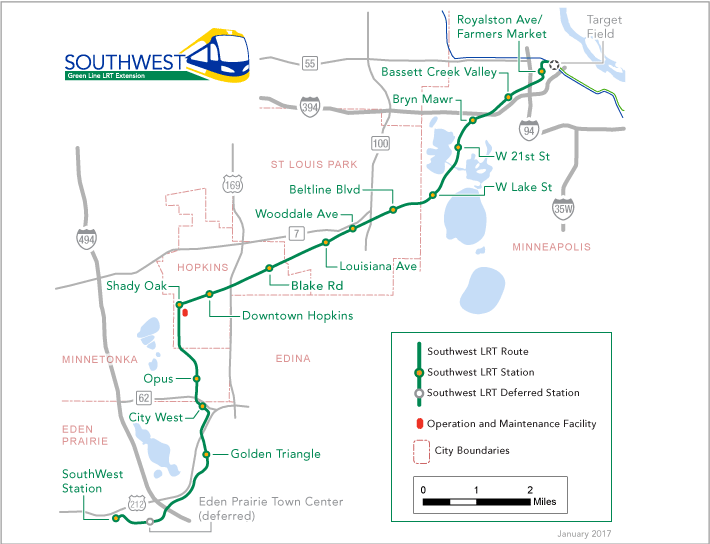Earlier this month, Transportation Secretary Elaine Chao put a highly-regarded project to modernize Caltrain, the commuter rail line between San Jose and San Francisco, in jeopardy. Acting at the behest of Congressional Republicans opposed to high-speed rail, Chao delayed a $647 million grant for Caltrain electrification, throwing its future in doubt.
It looks like Republicans in other states were watching and learning.
State lawmakers in Minnesota are appealing to Chao to sink Minneapolis's Southwest Light Rail, a 15-mile route between downtown the western suburbs expected to draw about 35,000 weekday passengers.

A grant from the Federal Transit Administration's New Starts program is supposed to cover $929 million of the $1.85 billion project, which is currently in the engineering phase.
State Senator David Osmek, who represents the western suburbs, has introduced a resolution in the Republican-controlled legislature asking Chao to divert that $929 million to roads and bridges around the state.
By law, however, the FTA grant funding can't be transferred to roads. "They can’t reprogram [Federal Transit Administration] funds," said Stephen Lee Davis of Transportation for America. "There’s no way to do that. They’ll just lose the money. That money will just go to another place."
That wouldn't bother Osmek, who told the Star Tribune he would rather lose the money to another state altogether than see it spent on transit.
It's unclear if Chao can even rescind the money at this point. While a full funding agreement has yet to be signed, the FTA has approved the grant. Yanking the funding away would be highly unusual at the very least, said Davis.
Trump's upcoming budget could give ammunition to local Republicans looking to disrupt urban transit projects, Davis warned. The budget is expected to include sweeping cuts (except to military spending, naturally), and the GOP has been targeting transit funding for years.
Even if the GOP stops short of zeroing out federal transit funds, an idea supported by the brain trust reportedly drawing up the blueprint for Trump's budget, less severe cuts could still cause havoc, robbing projects like Southwest Light Rail or Indianapolis's Red Line bus rapid transit of anticipated funding.






